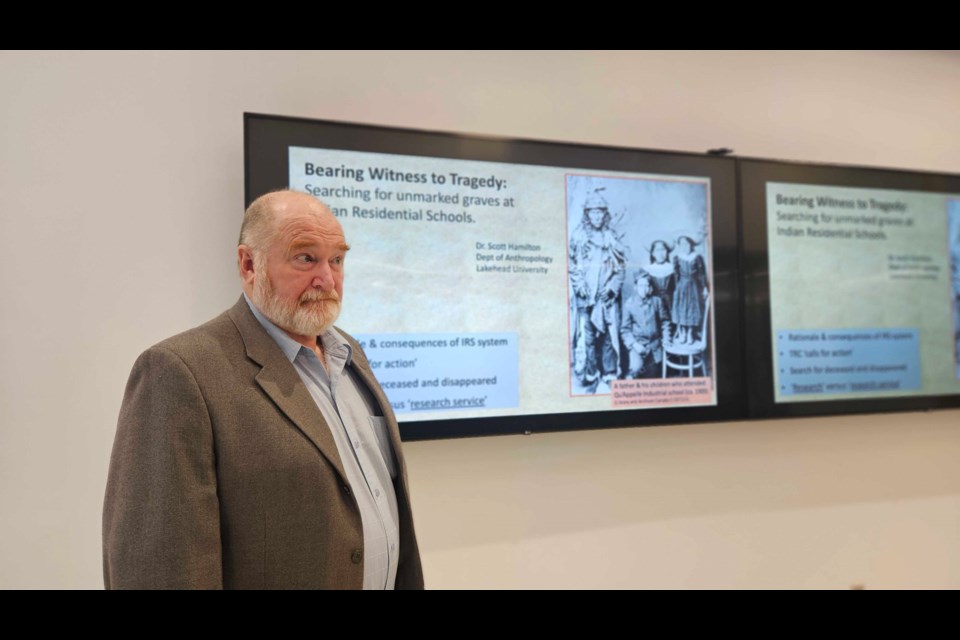THUNDER BAY — During Research and Innovation Week at Lakehead University, a professor gave an in-depth public lecture about the work that went into searching for unmarked graves at former residential schools.
Scott Hamilton is an anthropology professor at Lakehead University. He has worked with the Truth and Reconciliation Commission as a researcher and has served as a consultant to various First Nations in their investigations into residential schools.
He spoke with TBnewswatch on Tuesday before his distinguished researcher lecture, which was held in Lakehead's CASES building.
"A lot of this material is ongoing research that I've gotten permission from my community leaders to present -- about what the nature of the research is, what the findings are."
Hamilton talked about his current role in some of those searches.
"My particular deal is trying to figure out how to tie the archival data to the oral history information to the existing landscape and the geomatics. So I'll be talking mostly about that process of data integration, how to get all of those disparate pieces into something that becomes useful as a search tool.
"We've realized how incomplete those federal records are. There's huge gaps, both in terms of mortality rates but also what the places look like, how the places were used, how the space within those school grounds were utilized and a lot of that other information comes from very diverse sources."
Hamilton said a lot of the leg work done before a ground search can happen comes from air photos from the national archive, church records, surveyor reports, geological surveys, incidental photos from families and other archival sources.
Once that research has taken place, then it's a matter of finding a physical location.
"Then there's the process of the geophysics to search noninvasively below the ground -- that's what most people know about, which involves ground penetrating radar surveys."
The professor said using ground penetrating radar should be the last step in the search for unmarked graves.
"It generates enormous amounts of very ambiguous data, and therefore, you want to use that powerful tool with all of its flaws in a targeted way. You want to be able to target specific high-probability areas. Otherwise, we'll be doing this for a century, right?"
Research and Innovation Week is a prime venue to showcase different types of lectures like this one, which allows researchers to present more detailed talks to the public and other academics.
Hamilton said this research is more suited for public discussions instead of being included in a publication, which is where research is normally described.
"It's much more intended for public dissemination in unconventional ways. That involves community briefings and reports to the communities involved where they then make decisions about how it is disseminated or not -- because some of this is extremely sensitive data and it has to be handled very carefully."
More details on other events happening for Research and Innovation Week can be found here.
